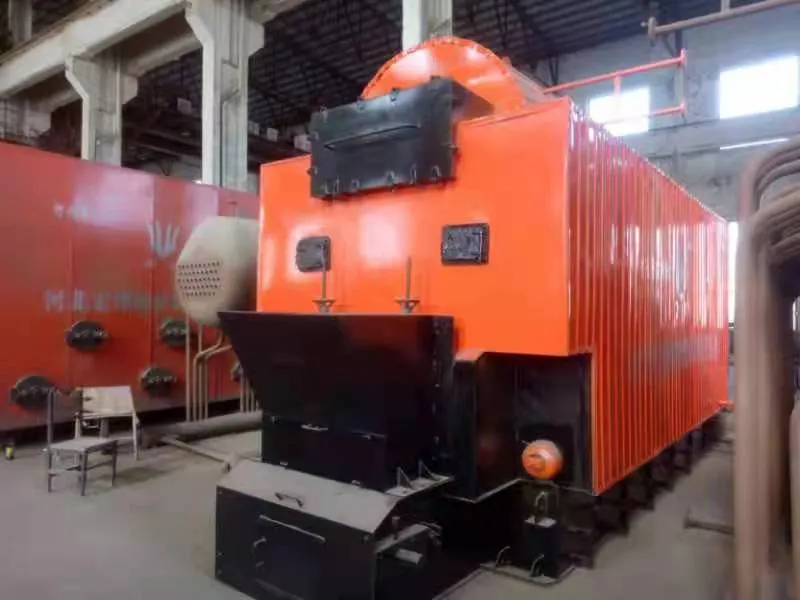
11월 . 12, 2024 13:51 Back to list
thermal efficiency of steam boiler
Understanding the Thermal Efficiency of Steam Boilers
Steam boilers have been a vital component of industrial processes for over a century, providing heat and power to various manufacturing and energy production sectors. One key aspect of their performance is thermal efficiency, which measures how effectively a boiler converts fuel into usable energy. Understanding the thermal efficiency of steam boilers is critical not only for optimizing operations but also for reducing fuel consumption and minimizing environmental impact.
What is Thermal Efficiency?
Thermal efficiency of a steam boiler is defined as the ratio of the useful energy output (in the form of steam) to the energy input from fuel. It is expressed as a percentage and can be calculated using the formula
\[ \text{Thermal Efficiency} (\%) = \left( \frac{\text{Useful Energy Output}}{\text{Energy Input}} \right) \times 100 \]
In simpler terms, it indicates how much of the fuel energy is transformed into steam. A higher thermal efficiency means that more of the input energy is converted into useful work, making the system more economical and environmentally friendly.
Factors Affecting Thermal Efficiency
Several factors influence the thermal efficiency of steam boilers, including
1. Fuel Type Different fuels have different heating values and combustion characteristics. Natural gas, for example, typically has a higher thermal efficiency than coal due to its cleaner combustion.
2. Boiler Design The configuration and materials of the boiler significantly affect its efficiency. Fire-tube boilers and water-tube boilers have different operational efficiencies due to their design and heat transfer mechanisms.
3. Combustion Control Systems Advanced combustion control systems can optimize fuel and air ratios, significantly enhancing efficiency. Automated controls can adjust the mixture in real time to ensure complete combustion and minimize losses.
thermal efficiency of steam boiler

4. Heat Recovery Systems Incorporating economizers or heat recovery steam generators can capture waste heat from flue gases and use it to preheat feedwater, thereby increasing overall efficiency.
5. Maintenance Practices Regular maintenance is crucial for sustaining high thermal efficiency. Scale buildup, soot accumulation, and faulty components can lower the efficiency of a boiler. Scheduled inspections and cleaning can help maintain optimal performance.
6. Operating Conditions Operating pressure, temperature, and the flow rate of steam all play a role in determining efficiency. Boilers should be operated within their designed operational parameters to maximize their performance.
Importance of High Thermal Efficiency
Improving the thermal efficiency of steam boilers is not just a matter of economic benefit; it also has broader implications for energy conservation and environmental sustainability. Here are several reasons why high thermal efficiency is essential
1. Cost Savings Higher efficiencies translate directly into lower fuel costs. For industries that rely heavily on steam production, even small improvements can lead to substantial savings over time.
2. Reduced Emissions Improving thermal efficiency results in lower fuel consumption, which in turn reduces greenhouse gas emissions and other pollutants. This is particularly significant in industries subject to strict environmental regulations.
3. Resource Conservation Greater efficiency means less fuel consumption, which helps conserve natural resources and reduces dependency on fossil fuels.
4. Increased Reliability Efficient boilers tend to operate more reliably, causing fewer disruptions in production and reducing the need for emergency repairs.
Conclusion
Thermal efficiency is a critical metric that influences the performance, cost-effectiveness, and environmental impact of steam boilers. By understanding the factors that affect efficiency and implementing strategies to enhance it, industries can optimize their operations while contributing to sustainability goals. Operators should focus on selecting appropriate boiler designs, utilizing advanced combustion control systems, and committing to robust maintenance practices to ensure their steam boilers are operating at peak efficiency. As energy demands grow and sustainability becomes increasingly essential, investing in high-efficiency steam boiler systems will be key to meeting both operational and environmental objectives.
-
High-Efficiency Commercial Oil Fired Steam Boiler for Industry
NewsJul.30,2025
-
High-Efficiency Biomass Fired Thermal Oil Boiler Solutions
NewsJul.30,2025
-
High Efficiency Gas Fired Thermal Oil Boiler for Industrial Heating
NewsJul.29,2025
-
High-Efficiency Gas Fired Hot Water Boiler for Sale – Reliable & Affordable
NewsJul.29,2025
-
High Efficiency Biomass Fired Hot Water Boiler for Industrial and Commercial Use
NewsJul.29,2025
-
High-Efficiency Biomass Fired Hot Water Boiler for Industrial Use
NewsJul.28,2025
Related PRODUCTS






















